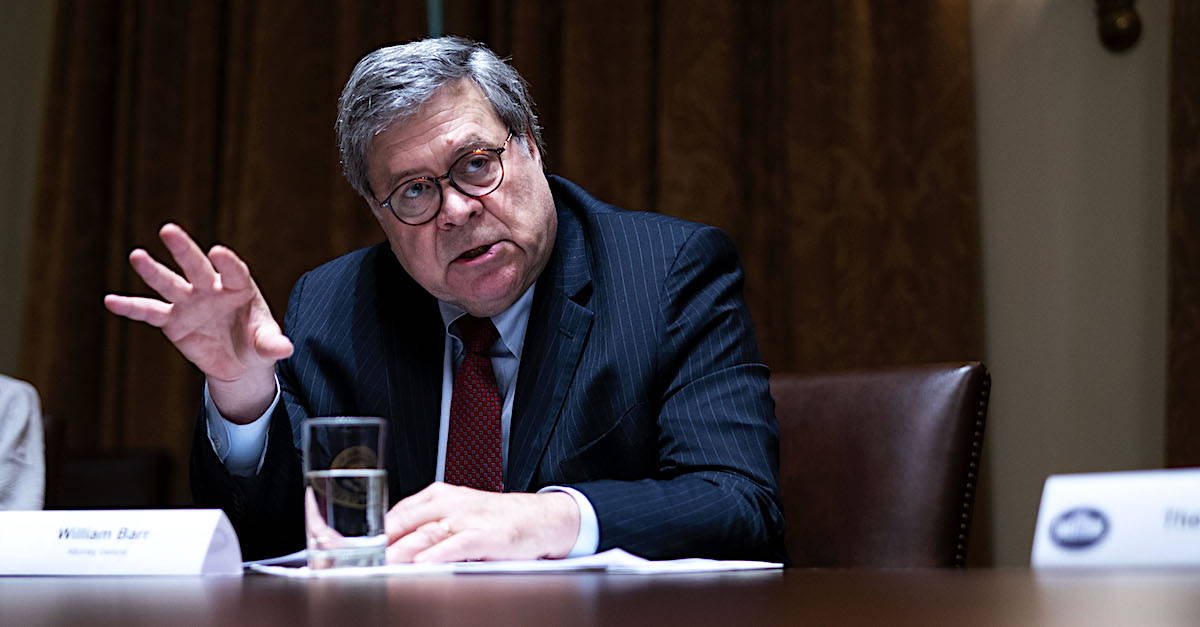
In a Tuesday statement, more than 1,000 diverse religious leaders called upon President Donald Trump and United States Attorney General William P. Barr to “focus[ ] on protecting and preserving life,” not executing people.
The 51-page statement, with an alphabetical list of inter-faith leader-signatories from across the country, stated simply, “As our country grapples with the COVID 19 pandemic, an economic crisis, and systemic racism in the criminal legal system, we should be focused on protecting and preserving life, not carrying out executions.”
The statement followed Barr’s June 2020 announcement that he had directed the Federal Bureau of Prisons (BOP) to schedule the first federal executions since 2003. Only three federal executions have been carried out since 1963, including the 2001 execution of Oklahoma City bomber Timothy McVeigh.
Barr first announced his intention to “resume capital punishment after a nearly two decade lapse” in July 2019, when he announced that the BOP would schedule the execution of five death-row inmates — Daniel Lewis Lee, Lezmond Mitchell, Wesley Ira Purkey, Alfred Bourgeois and Dustin Lee Honken — all convicted of murdering children. Barr also announced that the BOP would adopt an Addendum to the Federal Execution Protocol, replacing “the three-drug procedure previously used in federal executions with a single drug—pentobarbital.”
In January, Washington, D.C. District Court Judge Tanya S. Chutkan, granted an injunction to stay the executions, suggesting that Barr’s proposed execution protocol “very likely” violated the Federal Death Penalty Act (FDPA) because it established a single procedure for all federal executions, rather than carrying them out “in the manner prescribed by the law of the State in which the sentence is imposed,” as FDPA requires.
The Supreme Court refused to hear the case, but Justice Samuel Alito, joined by Justices Neil Gorsuch and Brett Kavanaugh, issued an order sending the case to the U.S. Court of Appeals for the D.C. Circuit for review, suggesting that the government was “very likely to prevail.”
Prevail it did in April, when the D.C. Circuit lifted the injunction in a 2-1 decision. The Circuit Court disagreed with Judge Chutkan’s interpretation of the FDPA, stating that while the law requires the federal government to “adhere at least to a State’s choice among execution methods such as hanging, electrocution, or lethal injection,” the federal government is not required “to follow all the subsidiary details set forth in state execution protocols—such as, in the case of lethal injection, the method of inserting an intravenous catheter.”
The BOP has scheduled the executions of Lee, Purkey and Honken for July 13, 15 and 17, to be followed by the execution of Keith Nelson on August 28 (Purkey and Nelson were convicted of raping the children they murdered).
The executions are to take place at Terre Haute, an Indiana penitentiary which has suspended visitation, according to its website. Last week, Seigen “Dale“ Hartkemeyer, a 68-year-old Buddhist priest with a lung condition and spiritual advisor to inmate Purkey, asked the Southern District of Indiana to postpone the execution, claiming that the “documented COVID-19 outbreak” at Terre Haute would prevent him from exercising his right to attend the execution.
In a statement obtained by Law&Crime, Carlos Malavé, Executive Director of Christian Churches Together, stated, “As an Evangelical, I am heartbroken to see our country return to killing its citizens. We have seen so much death in recent months and people are hurting. Restarting executions during a pandemic should be the farthest thing from our minds.”
[Image via Doug Mills-Pool/Getty Images]